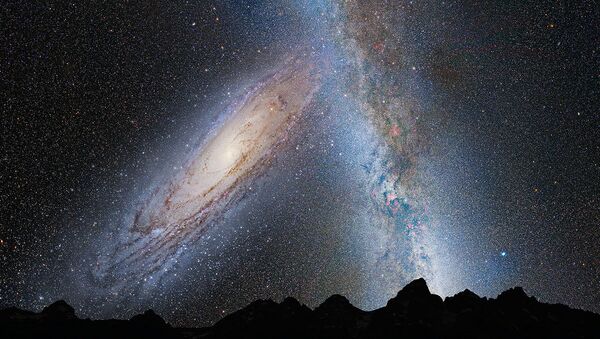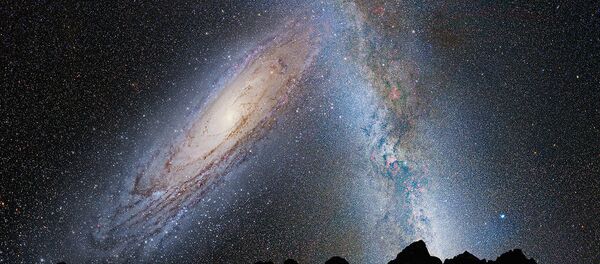"We know that [dark matter] leaves almost no traces and our main task is to dramatically lower the detection threshold to a minimum, which is physically possible in principle. There is quite substantial progress and we hope that a prototype of this detector can be created in the next year or two," said Yuri Tikhonov, Budker Institute of Nuclear Physics deputy director in charge of research.
Tikhonov noted that the detector would search for the elusive space material with the help of condensed inert gases, including argon. He said scientists have identified argon as the gas most suitable for ensuring the detection threshold to register dark matter's nuclei recoils.
"These results will serve as the basis for creating a dark matter detector. You need low-background underground laboratories, such as the Gran Sasso in Italy. We have been invited to cooperate there with a big experiment," he said.
The work is being carried out with funding from the Russian Science Foundation, Tikhonov added.
"The scale of preparation for such an experiment is five to seven years. It is an enormous installation of tens of tonnes of liquid argon. I think that the construction will be close to completion this decade. But the worldwide goal is to find dark matter by 2023-25," he said.
Dark matter does not emit electromagnetic radiation, and remains immune to direct observation. Astrophysicists have so far only observed gravitational effects of dark matter on cosmic objects, such as galaxies and galaxy clusters.
Indirect observations include searching for excess gamma ray emissions, which may be the product of weakly interacting massive particle (WIMP) decay. The theoretical WIMPs are thought to be the main component of dark matter.



